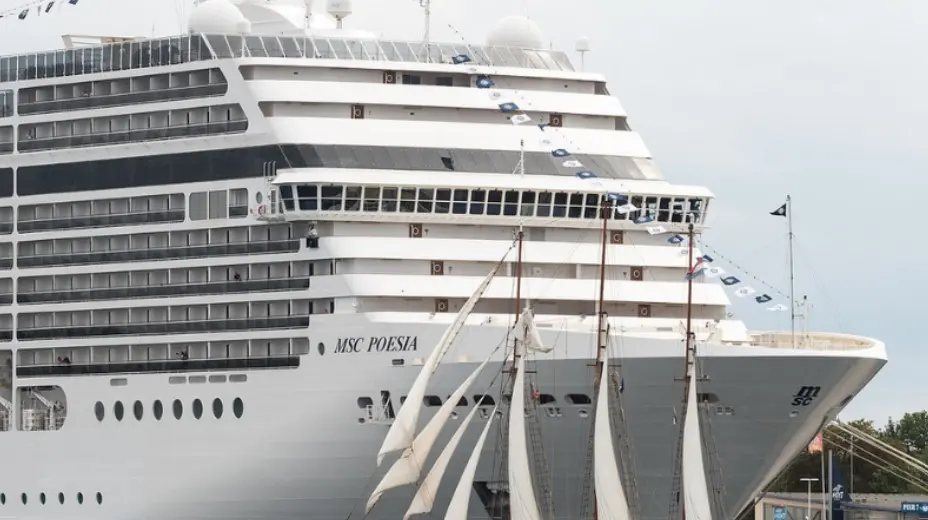Ownership of a boat enables you to move on water bodies, fish, or even cruise. But boats require proper maintenance and occasional repairs in order to be safe and in good working condition. Understanding when your boat should seek professional repair can prevent small issues from developing into huge problems that might result in you getting stuck on the water or facing a significant repair bill. This guide explains the signs that reveal your boat can be in need of immediate repair services.
Engine Warning Signs
Your boat’s engine is its lifeblood, and issues there should never be disregarded. A healthy engine keeps you safe on the water and avoids surprise breakdowns in bad locations.

Unusual Noises
If your boat’s engine begins making noises that it hasn’t in the past, it’s attempting to communicate with you:
- Grinding noises tend to mean problems with the transmission or the drive system
- Clicking noises. These may indicate electrical issues or a bad starter
- Knocking or tapping may indicate loose parts or internal engine damage
- Whining sounds may indicate power steering system problems or belt issues
Don’t just crank up the music to mask these warning noises. Engine sounds get progressively worse and usually indicate serious mechanical problems that need to be addressed by a professional right away.
Performance Issues
A poorly functioning boat could indicate problems needing repair. Some indicators are difficulty in starting, continual stalling, less power or speed than what would be considered normal by the operator’s input, huge amounts of smoke (with different smoke colors) from the exhaust, and strange vibrations felt in the hull or steering wheel.
These problems are not ones that simply get better on their own; in fact, they tend to get worse with the more operation time the boat has. When performance issues are left unchecked, they may cause severe and costly damage, such as engine failure. So, to have your boat up safely and running effectively, it is well worth evaluating and correcting any of these symptoms with one of our qualified marine mechanics.
Fuel and Oil Issues
Fuel or oil system problems need to be addressed immediately:
Fuel Leaks: Any fuel odor or leaks is a repair need as well as a serious safety hazard. Fuel leaks have the potential to create fires or explosions and should be repaired immediately.
Oil Problems: If you see oil levels decreasing rapidly, oil looking dirty (milky or foamy), or warning lights for oil pressure issues, these symptoms can cause engine seizure if not immediately fixed.
Coolant Issues: Overheating engines or coolant leaks must be repaired right away to avoid warped heads or cracked blocks, some of the most costly engine repairs.
Hull and Structural Warning Signs
Your hull and structural parts support you above the water and are the basis for everything else. Issues in these areas can undermine safety and must never be overlooked.
Visible Damage
Regular inspection of your hull can uncover issues that need immediate attention:
- Cracks or fractures in the material of your hull, particularly below the waterline
- Blistering on fiberglass hulls, which can mean water penetration
- Dents or punctures that could undermine structural integrity
- Warping or abnormal flexing of the hull while underway
- Separated seams on aluminum boats or deteriorating caulking on wood boats
Minor damage or cracking can develop rapidly when subjected to the stresses of boat use and could result in water entry or structural failure.
Water Intrusion Problems
Water where it shouldn’t be is always problematic:
Increasing Bilge Water: If your bilge pump operates more than normal or you notice substantial water buildup in the bilge space, you can have leaks that must be fixed immediately.
Dampness or Water Stains: Unexplained wetness, water spots, or mold in cabin spaces or storage compartments indicates water is entering where it shouldn’t.
Soft Spots on Deck: Parts of the deck that are soft or spongy to walk upon signal water damage to core materials and should be professionally evaluated.
Water intrusion issues generally get worse over time and may cause considerable damage to electrical systems and interior components, and even structural failure if ignored.
Electrical System Red Flags
Today’s boats use electrical systems to do everything from engine start-up to navigation. Electrical problems render your boat inoperable and can lead to fires.
Power Problems
Watch out for these electrical signs of trouble:
- Lights that dim or varying readings on instruments
- Frequent tripping of circuit breakers
- Battery terminal corrosion or a hot battery connection
The battery fails to hold a charge after normal charging
- Random electrical component failure**
Electrical problems on boats are especially worrisome because of the corrosive saltwater environment and the risk that shorts will result in fires or electrolytic damage to metal parts.
Navigation System Failures
Problems with navigation equipment can get you lost at sea:
- Erratic Readings: GPS, depth sounders, or other electronic navigation equipment giving inconsistent or clearly inaccurate readings.
- Screen Failures: Flickering displays, displaying partial information, or failing entirely.
- Communication Equipment Problems: Radio equipment that operates sporadically or with greatly diminished range.
In a marine setting, navigation system malfunctions can rapidly lead to hazardous circumstances, particularly under conditions of low visibility or unfamiliar seas.
Steering and Control Malfunctions
Steering or control system malfunctions directly affect your capability to safely maneuver your vessel and must be rectified immediately.
Steering Issues
Be observant for signs of potential steering issues with your boat, as they can quickly escalate from annoyances to serious risks, especially in rough water and during emergencies. You may also hear unusual sounds, such as grinding or clicking when steering, and may find that hydraulic steering components are leaking fluid. These issues require immediate attention to ensure steering and safety on the water.
Top Professional Boat Services
When your boat shows any of the above warning signs, seeking competent repair services is imperative to avoid further damage and ensure your safety on the water. Choosing the right professionals can make all the difference in restoring your vessel’s performance and longevity. Below are key factors to consider when selecting expert boat maintenance and repair services, but don’t wait until a small issue becomes a costly repair. Take action early and book professional boat repair services today to keep your boat running smoothly and reliably.
Getting Competent Marine Technicians
Not every mechanic possesses the expertise required for boat repair:
- Certified Technicians: Search for technicians certified by the American Boat and Yacht Council (ABYC) or having manufacturer-specific certification for your engine brand.
- Experience Counts: Seasoned marine technicians have encountered numerous issues and perfected efficient diagnostic methods that will both save you money and time.
- Specialized Knowledge: Certain shops fix only one type of boat or system (i.e., outboard motors, diesel engines, or electrical systems). Having your problem matched up with a specialist generally means improved repairs.
- Reputation and Reviews: Look up online reviews, get referrals from other boaters, and check with your marina about the reputation of the repair service.
Comprehensive Service Options
The top marine service firms, like Ignition Marine offer a variety of necessary services to maintain your boat in peak performance. They provide mobile repair service that comes to your marina or dock, emergency services for critical situations, and seasonal maintenance packages that will prevent problems from arising in the future. The firms also tend to include haul-out capabilities for repairs below the waterline and employ advanced diagnostic technology to ensure accurate identification of even the most complex problems.
What to Expect from Quality Marine Services
Quality boat repair services should offer:
Precise Estimates: Written estimates that clearly outline parts and labor costs prior to the commencement of work.
Complete Inspections: Conduct thorough checks to detect potential issues before they become problems.
Marine-Grade Parts: Utilization of boat-quality components suitable for your boat, not automotive or general-purpose alternates.
Warranty Coverage: Protection of parts and labor for finished repairs.
Educational Approach: Agreement to describe issues, repair alternatives, and maintenance suggestions so that you can better comprehend your boat and make informed decisions.
Documentation: Complete histories of all work done that can benefit your maintenance record, and when selling your boat.
The most effective way to prevent emergency repairs is through consistent preventive maintenance. A regular maintenance schedule can spot potential problems before they become major repairs.
Routine Maintenance Tasks
A proper maintenance program should include:
- Scheduled oil changes and fluid inspection
- Annual check of all belts and hoses
- Bottom cleaning and antifouling treatments as required
- Seasonal anode (zincs) inspection and replacement when needed
- Electrical system testing, including the assessment of battery condition
- Propeller check for damage or imbalance
Professional Schedule of Inspection
With normal owner upkeep, professional inspections are worth it:
Annual Service: A thorough professional service and inspection prior to each boating season will uncover potential problems.
Engine Tune-ups: Professional engine tune-ups regularly keep the engine going well and can detect problems in the making.
Hull Inspections: Professional hull inspection, particularly after any grounding or collision, even a minor one.
Conclusion
Identifying warning signs that your vessel requires repair is a critical ability for every boat owner. From the strange noises your engine makes to issues with steering, these signals must never go unnoticed. Early repair prevents higher-cost repairs in the future but also guarantees safety on the water.
By having relationships with competent marine maintenance personnel and sticking to a consistent maintenance routine, you will have fun on the water without worry, knowing your boat is in good working order. Don’t forget that with boats, prevention is always cheaper than repair, and safety must always be a top priority.
Whether you have engine problems, hull problems, or electrical problems, don’t wait to talk to marine professionals who have the knowledge to maintain your boat in top shape for years of carefree boating.
Also Read-Minimizing Treatment Discomfort with High-Tech Solutions
